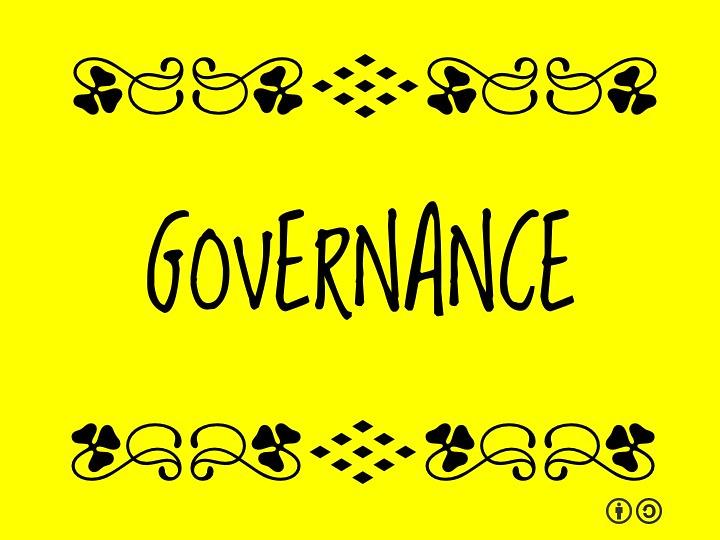
Mutual accountability and budget planning GCE summary for May 10-11, 2024
Pray in the Spirit at all times, in every prayer and supplication. To that end, keep alert and always persevere in supplication for all the saints. Pray also for me, so that when I speak, a message may be given to me to make known with boldness the mystery of the gospel, for which I am an ambassador in chains. – Ephesians 6: 18-20 (NRSV)
The General Council Executive (GCE) met virtually on May 10-11, 2024. Each day, the meetings were guided by Equity Aspirations (About Anti-Racism webpage > Downloads), with reflections by members of the Equity Team, who for this meeting were Alcris Limongi, M Chorney and Arlyce Schiebout, with Adele Halliday as a staff resource.
FRIDAY
The meeting was opened by the Moderator, who welcomed Rev. Katherine Brittain, a new member of the GCE. Worship was centred on Ephesians 6: 18-20 and included prayers for the world and local regional concerns.
Partner Council
The United Church of Canada Partner Council, who have been in meeting this week joined the meeting and brought greetings. The current members of the Partner Council are:
- Kangwa Mabuluki, General Secretary - All Africa Theological Education by Extension Association (Zambia);
- Annie Namala, Human Rights Advocacy and Research Foundation (India);
- Horacio Mesones, Director - Regional Ecumenical Centre for Advice and Service (Argentina);
- Samer Laham, Director of Emergency Response Services - Middle East Council of Churches, and
- Marcelo Leites, General Secretary – World Student Christian Federation (Argentina).
The focus of the conversation with partners was on the shared process of decolonization. They encouraged us to insert the concept of mutuality into our commitment to “radical accompaniment,” so that we seek “radical mutual accompaniment.”
Strategic Operational Plan
The GCE received the Quarter One report of the 2024 operational plan; 2024 is the second year of the General Council Office plan. In this quarter, which showed 76% progress in accomplishing planned key results, the leading priority of Growth shifted from developmental to direct implementation.
Jennifer Henry, Executive Minister for Organizational Development, and Sarah Charters, Executive Officer for Philanthropy and President of the Foundation, updated GCE members on progress pertaining to the Common Good objective of the strategic plan.
The strategic objective of this pillar is “to significantly increase denominational capacity and will to make decisions on properties and resources that are focused on the ministry of the whole church, with a view to enhancing equity, sustainability, right relations, and administrative efficiency and effectiveness.”
They outlined some of the key initiatives of this part of the annual plan, related to financial sustainability, collective decision making, shared services, and increased accountability, and invited GCE members into small group discussion. Questions focused on whether the initiatives and activities were appropriate to the national role, and what future priorities might be. In particular, the sessions sought to continue to find ways to assist Communities of Faith and regions by leveraging national support to reduce administrative burden or costs.
Operating Budget 2025 Assumptions and Principles (GS89)
At this, his last GCE meeting, Executive Officer of Finance Erik Mathiesen noted ways that the church has been “living within our means,” a commitment made through a new funding model in 2019, while striving to support Communities of Faith. The examples he shared included the Faithful Footprints grants to congregations to help them reduce their carbon footprint, and the Protect United initiative where a $3 million loan has funded a captive insurance program to help participating United Church ministries reduce insurance costs.
Harry Li, Controller, presented the 2025 budget principles and assumptions, noting that the high-level budget would be offered for approval in September. Harry spoke of how the framework used for the approved 2024 budget, and the 2025 principles and assumptions, aligns financial resources with strategic planning while also laying the foundation for achieving long-term financial sustainability.
Decisions about cost-of-living adjustments for GCO and RCO staff were postponed until September when a recommendation from the Total Compensation Task Group is expected. With this amended, the 2025 budget principles and assumptions, which include cost containment measures of approximately 1.5 million and a prudent use of reserves up to 2 million, were approved.
To read the 2025 budget principles and assumptions, please go to commons.united-church.ca > Governance > General Council Executive > GC44 Executive (2022-2025) > Meeting Documents > 2024-05-10-11 GCE.
United Property Resource Corporation (UPRC)
Tim Blair, CEO of Kindred Works and UPRC board member, presented his accountability report. UPRC is the primary point of contact for United churches across the country needing support and advice for property matters. Kindred Works is the United church’s property development corporation, committed to building purpose driven rental housing, including 5000 affordable units. Kindred Works has just been certified as a Beneficial Corporation (B Corp).
Tim Blair outlined the current Kindred Work’s goal to deliver 5,000 new units by 2027; seven projects will be construction-ready in 2024.
UPRC is working to increase knowledge and awareness within congregations, regions about the services it has available. One important piece of work is the development of regional land trusts to hold and manage surplus property within the United Church where the local community of faith has disbanded or amalgamated with another. The trusts aim to achieve long-term financial stability and stewardship for the common good, including possible future ministry needs such as might be emerging with the Growth initiative of the GCO strategic plan.
Four regional trusts were created: Eastern Ontario Outaouais, Eastern Central Ontario, Shining Waters, Horseshoe Falls and the United Church General Council. Other regions are establishing trusts, pending approval of their respective governing bodies.
Mission and Service
Sarah Charters shared a video that shows the inspiring work of Mission and Service and thanked GCE for their continued support of the work.
SATURDAY
Faithful Footprints
The Moderator began the day with a time of worship centering minority voices and invited some reflection on Amanda Gorman’s poem, Fury and Faith.
The Faithful Footprints (FF) program, a key initiative under the strategic plan’s Climate pillar, offers congregations up to $30,000 in grants towards energy conservation and renewable energy projects.
Michelle Singh, Executive Director for Faith in the Common Good which runs Faithful Footprints for the United Church, reported on the hearty engagement with the program, likely to include 500 congregations by the end of 2024.
As Erik Mathiesen highlighted, “contracting with the Faith in the Common Good network has been a way to access expertise, passion and connection with the environmental sector and people who are passionate about this subject.” He added, “I felt great confidence in connecting with this organization. I love that they say no, and that they advise congregations against doing things that don’t have long-term impact.”
Singh told the GCE that a Faithful Footprints grant to a congregation often spurs activities that go beyond the funded project. Some congregations have expanded their efforts to installing EV charging stations, or starting gardening projects that contribute to food security.
“When the congregation sees the changes, it causes a bit of a shift, and an energy develops for other work,” she said. “A $20,000 grant is a catalyst for action.”
Accountability reports: Moderator and General Secretary
The Moderator reflected back to the GCE some of the discussions, concerns and themes of what she is hearing across the church. She noted particularly that there is a shift in the church and in public opinion – a momentum – around justice for Palestine, more than there has been historically in the church.
Two GCE members shared appreciation for the Moderator’s capacity to engage the church, citing examples from recent Regional Council annual meetings. The Moderator has a gift, one said, for being able to react without being reactive.
The General Secretary noted the ongoing challenges of communicating with the church, sharing his reflections that there is both a need to share information and interest in finding information about the wider church. Both are needed.
Highlighting recent public outreach, such as a video spot created for the Stars on Ice tour, he emphasized the importance of communicating for the specific audience, drawing on research and best practices. Outward-facing communications are not “for the church, but rather for an outside audience.”
“There will be more segmentation of our communications. Some of the stuff you’ll see, you may be critical of it,” he said, asking for grace and the capacity to celebrate doing something different. The General Secretary also spoke of our commitment to be data-driven and focused on our leading priority. “We’re more intentional about making data-informed decisions,” he said. “We’re working with it and interpreting it, taking the numbers and evaluation seriously. Growth is a significant priority.”
The General Secretary acknowledged upcoming retirements, thanking Erik Mathiesen, Shirley Welch and Patti Talbot for their decades of commitment to the church and inviting deep gratitude. He noted that there will be significant institutional knowledge leaving with them.
Governance Education
Senior Governance Lead Cheryl-Ann Stadelbauer-Sampa led a session that highlighted the United Church’s conciliar model. Small group discussion focused on the appropriate way proposals come to the General Council and the General Council Executive, and the risks of bypassing opportunities for the fuller wisdom or discernment of the church.
The group also wrestled with the definition of “denomination-shaping” decisions, as well as definitions of “routine” and “urgent.” The Governance Committee will do further work on these questions and bring them back to the GCE.
Apartheid-Free Movement Proposal
The GCE considered a proposal (NEW01) submitted by a GC 44 Commissioner focused on human rights and international law violations by the state of Israel leading to systemic racial discrimination. The proposal asked the GCE to:
- generate discussion throughout the denomination by promoting important studies conducted by key partners;
- become a signatory body to the Apartheid-Free Community Campaign at https://apartheid-free.org commission a group to recommend effective next steps as an Apartheid-Free Church; and encourage action by congregations.
The GCE recognized the urgency of the unfolding catastrophe in Gaza, and supported ongoing efforts of the denomination, such as participation in the Gaza Ceasefire Pilgrimage, to advocate including for humanitarian aid, permanent ceasefire and just peace.
With reference to the proposal, the GCE directed the General Secretary to address all aspects of the proposal actionable under the principle-based justice approach. The GCE decided to defer becoming a signatory body to the campaign until the October annual General Council meeting, where the matter could be considered with other tabled proposals. The GCE also asked for some legal advice to be gathered on the procedure for receiving proposals directly, rather than from another council of the church.
Further...
A Behavioural Covenant for all denominational committees was approved in the consent agenda, but will take effect at the rise of General Council 45. Several small changes to the Manual were also approved, with two items referred back to the Manual Committee for more clarification.
The next GCE meeting is Sept. 27-28, and will be online, as will the GC44 annual meeting on Oct. 19.
To review the proposals and reports provided for the GCE for this meeting, go to commons.united-church.ca > Governance > General Council Executive > GC44 Executive (2022-2025) > Meeting Documents > 2024-05-10-11 GCE.
